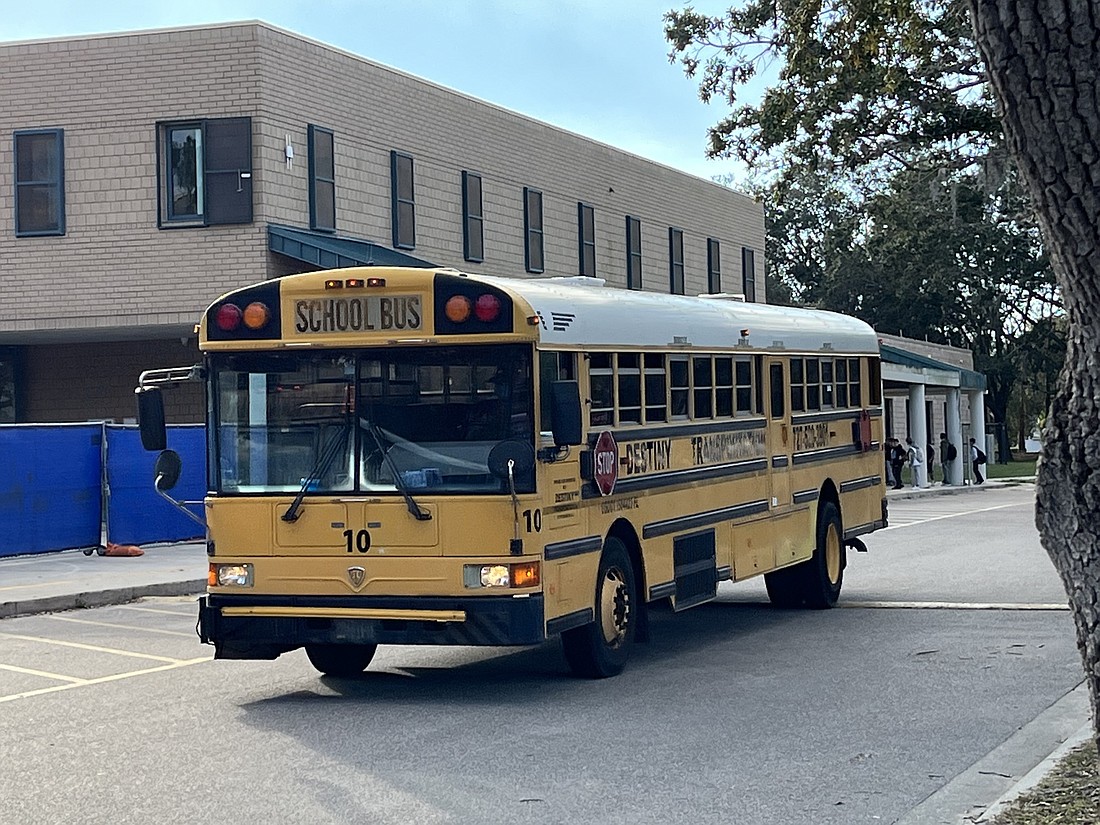- December 27, 2024
-
-
Loading

Loading

The School District of Manatee County plans to have three to five electric buses in operation starting with the next (2022-23) school year.
The district has been awarded a grant that would cover a portion of the cost for an electric bus through the Florida Department of Environmental Protection’s Electric Bus Project, which has an overall pot of $57 million to distribute. The Electric Bus Project would pay for approximately two-thirds of the cost of each bus.
Manatee County is among 23 counties across the state that were eligible for the grant because the Florida Department of Environmental Protection considers them air quality priority areas.
Joe Ranaldi, the chief operations officer for the School District of Manatee County, said the cost of an electric bus is about $300,000, and the district would have to pay for about $110,000, which is the same cost of a diesel bus.
Florida Power and Light will provide the district free charging stations.
Ranaldi hopes the district will be able to charge the electric buses between running routes to and from schools.
Read more: Manatee Commission prioritizes road projects
The grant gives the district the opportunity to purchase a maximum of 20 buses, but the district plans only to buy three to five buses to start.
“I’m interested to see how it works out,” said Jamie Warrington, the director of transportation for the School District of Manatee County. “I do hope that it’s successful and we can expand it. As the technology improves and the range of the vehicles improves, then counties like ours will be hugely benefited. Right now the tech is somewhat new, so I’m excited we’re going to get the chance to give this a try.”
The district will bring all the information to the school board in the spring and, if approved, will move forward.
Ranaldi said the district is working with bus and battery manufacturers to identify a reasonable driving range for buses. The district has about 110 bus drivers and is in need of about 42 more drivers. On top of the bus driver shortage, the district is dealing with drivers unable to work due to positive COVID-19 tests.
“With our bus driver shortage, at this point, we’re extending our routes well beyond what a normal route would be in order to pick up additional bus stops per route,” Ranaldi said.
Read more: 2022 construction projects take shape in Lakewood Ranch
The district will use the three to five buses as an opportunity to study how the buses function in Manatee County. The district will find out more about driving range and what the best times will be to charge the buses.
From there, the district can decide whether to take advantage of getting more electric buses through the grant.
“We’re going to be studying it and maintaining the data on the usage, charging times and things of that nature,” Warrington said. “With each passing year, the technology improves.”
Once approved by the board, the district will work with manufacturers to provide the buses, which Ranaldi said could take between six and eight months to deliver.
Warrington said general supply chain issues could mean it would take longer to get the buses.
“We’re thinking if the decision is made this spring, it’ll probably be late (this year) when we’ll be seeing the first group of electric buses,” Warrington said.
Warrington said the electric buses most likely will run in the west part of the county at first because electric bus driving range is estimated at 100 miles. The district has identified four routes that would be about or less than 100 miles. School bus routes in Manatee County range between 100 miles to 180 miles.
“We have a lot of rural areas in Manatee County, unlike some of the other districts that’s all urban,” Warrington said. “Electric vehicles are good (in urban areas) because when you hit the break, it regenerates and helps keep the battery charged. When you get into a county that has a lot of rural areas, there isn’t a lot of braking, so you’re limited as to how far you can go on a single charge.”